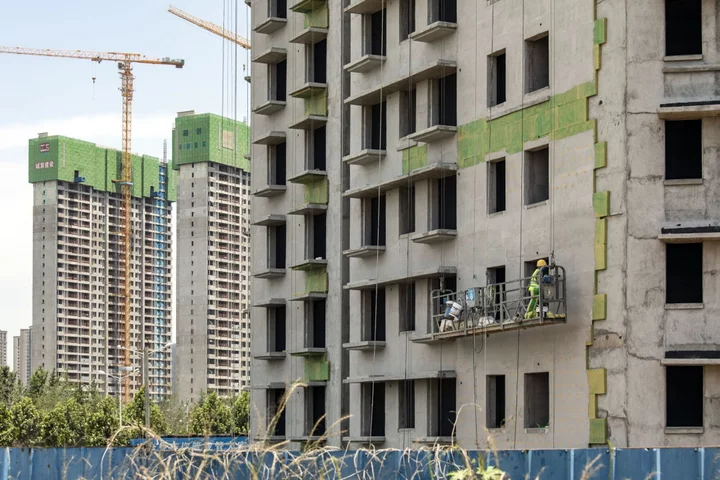China’s beleaguered property sector needs a more comprehensive policy approach and a wider usage of different funding channels for a meaningful recovery, according to Pacific Investment Management Co.
“Confidence is elusive so far and may require nationwide messaging rather than city-specific announcements,” Stephen Chang, managing director and portfolio manager at Pimco Asia Ltd., said in an interview. A full use of the so-called three arrows — the capital-raising tools of bond financing, bank loans, and equity funding — has been lacking, with a “near absence” of the latter, he said.
China’s real estate sector is still reeling from its worst-ever debt crisis that triggered a wave of defaults last year. The outlook remains dim, with analysts at Goldman Sachs Group Inc. projecting an L-shaped recovery in the coming years as policymakers appear determined not to use the sector as a short-term stimulus tool.
READ: Goldman Expects ‘L-Shaped’ Recovery in China Property Market (1)
A rally in shares of Chinese property developers quickly pared Tuesday following an unexpected cut in the central bank’s short-term policy rate, suggesting market sentiment remains cautious. China high-yield property bonds were mostly unchanged, according to credit traders.
Bond-market titan Pimco is selective on China’s high-yield property bonds, focusing on the developers’ ability to secure funding and the amount of quality assets available to monetize, according to Chang, who spoke before Tuesday’s rate action by the People’s Bank of China.
“The upcoming maturity profile and the underlying strength of the areas they operate in will also be important factors to consider,” he added.
The cautious approach comes as fund managers have cut their China junk bond exposure to $21 billion from a peak of $39.2 billion, according to filings analyzed by Bloomberg Intelligence. One of China’s largest brokers, Haitong International Securities Group Ltd., said its asset management unit is shedding exposure to the Chinese developers’ dollar bonds after expectations thinned for a turnaround.
While developer stocks and bonds have received a boost from an early June report that authorities are mulling more support, whether sales can rebound to pre-Covid levels remain a “question mark,” according to Chang.
A Bloomberg index of Chinese junk dollar bonds, dominated by developers, logged its first back-to-back weekly gain since February. A gauge of the country’s developer shares has gained 10% in June, but remains more than 30% down from its December high.
“Yields are high for the below-investment-grade segment, but the question is if they can perform in a downturn or whether there will be helpful measures to support their recovery,” Chang said.
(Updates with latest market moves and PBOC’s policy action)









